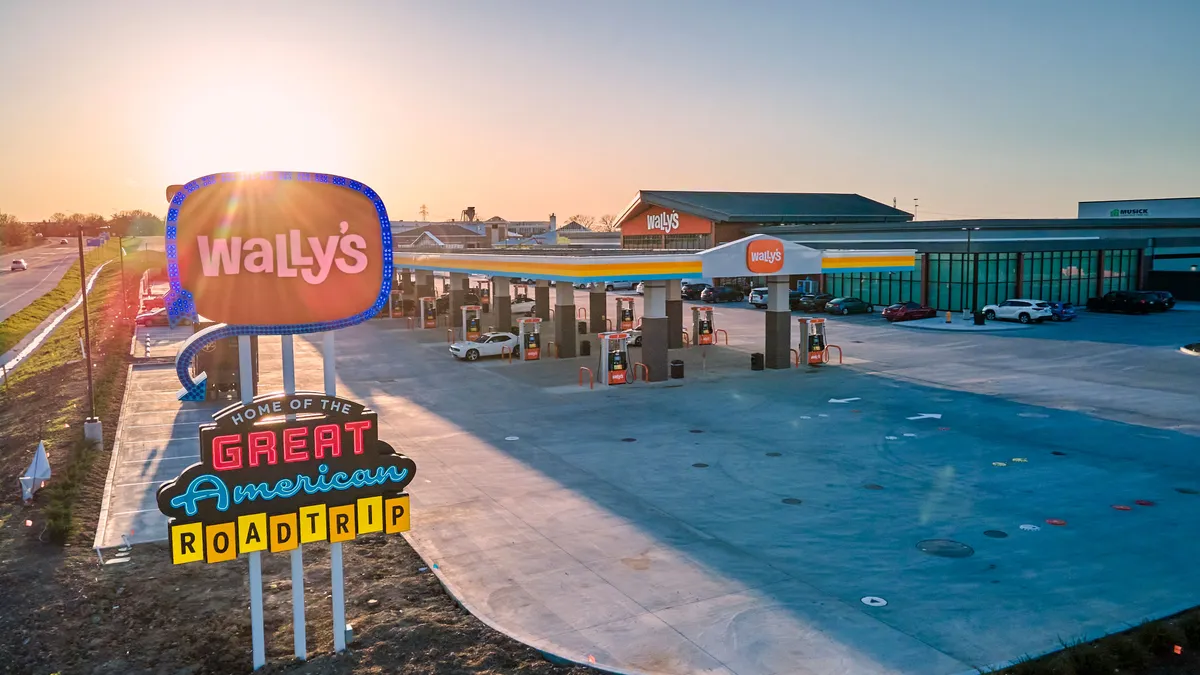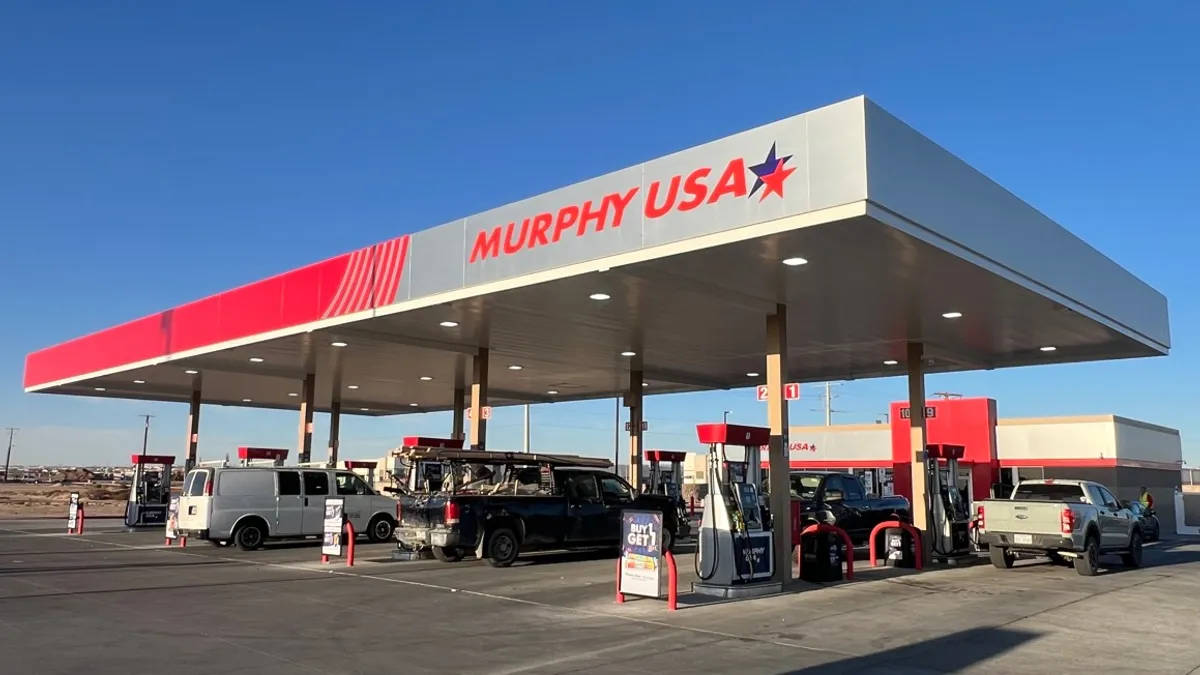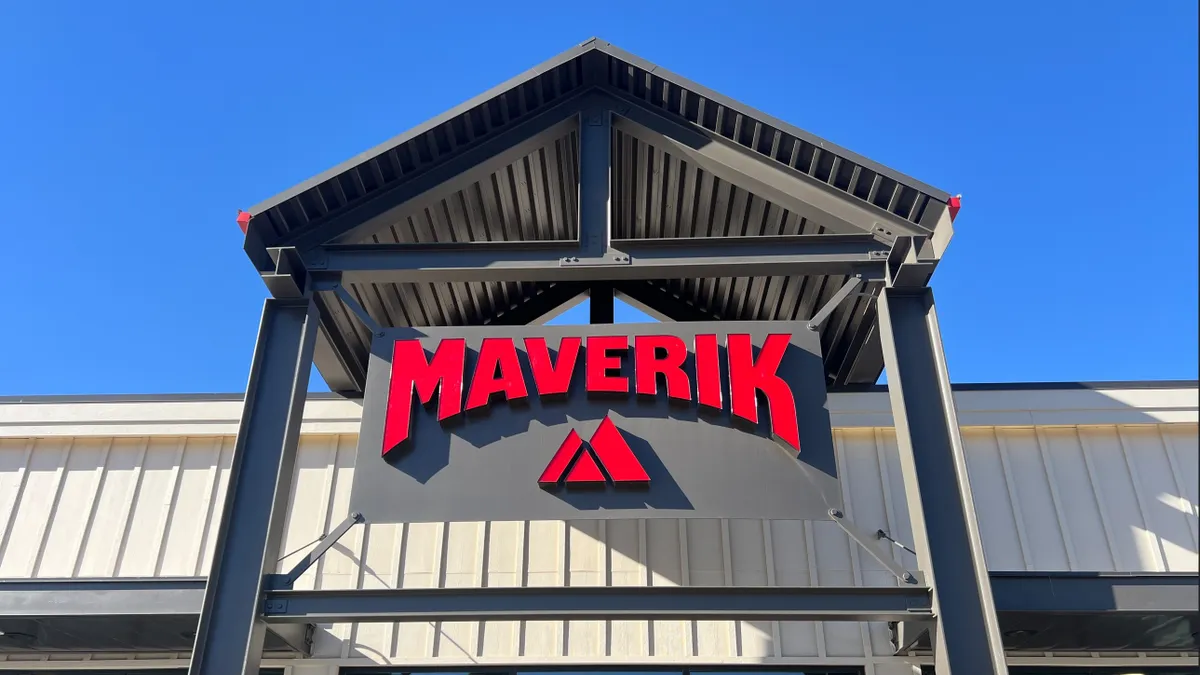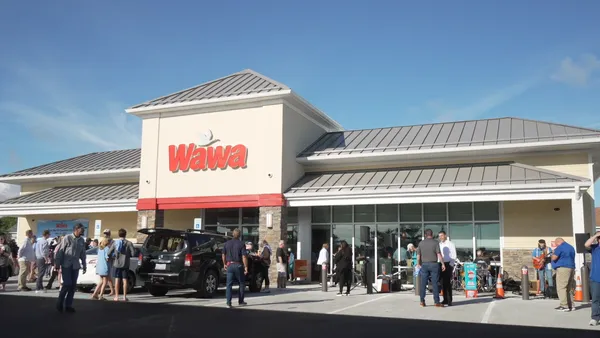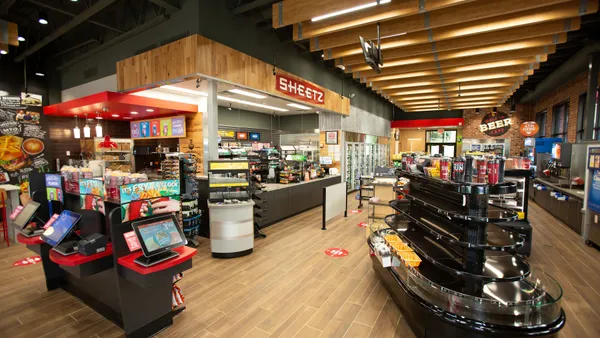In 2017, cousins Michael Rubenstein and Chad Wallis decided they wanted to open a “mega” convenience store that combined elements of traditional c-stores, grocery stores, food courts and retail shops.
Rubenstein had nearly a decade of experience as a corporate logistics attorney, and another eight running a real estate development business. Wallis, meanwhile, was already working in the c-store industry, having managed various On the Run locations in the St. Louis, Missouri area.
“Over time, it got refined and really became a business plan,” Rubenstein said in an interview.
Three years later, in October 2020, Rubenstein, Wallis and their partner Garrett Thompson opened the first Wally’s travel center in Pontiac, Illinois. The 29,600-square-foot store is split into three “experience stations,” with a section for standard convenience items like candy, beverages and coffee; another for made-to-order foodservice, including barbecue, popcorn and specialty coffee drinks; and a section dedicated to selling Wally’s-branded clothes, home goods, kitchen supplies, outdoor equipment, board games and more.
The forecourt includes 76 fueling stations — all carrying Wally’s proprietary gasoline — as well as an electric vehicle charging canopy with four Wally's-branded chargers. The company is planning on installing between eight and 16 Tesla superchargers as well.
And the restrooms are enormous.
“It's been a fun journey,” said Rubenstein, president and CEO of Wally’s. “We're really trying to follow the trends of what people are liking, and just really lean into that.”
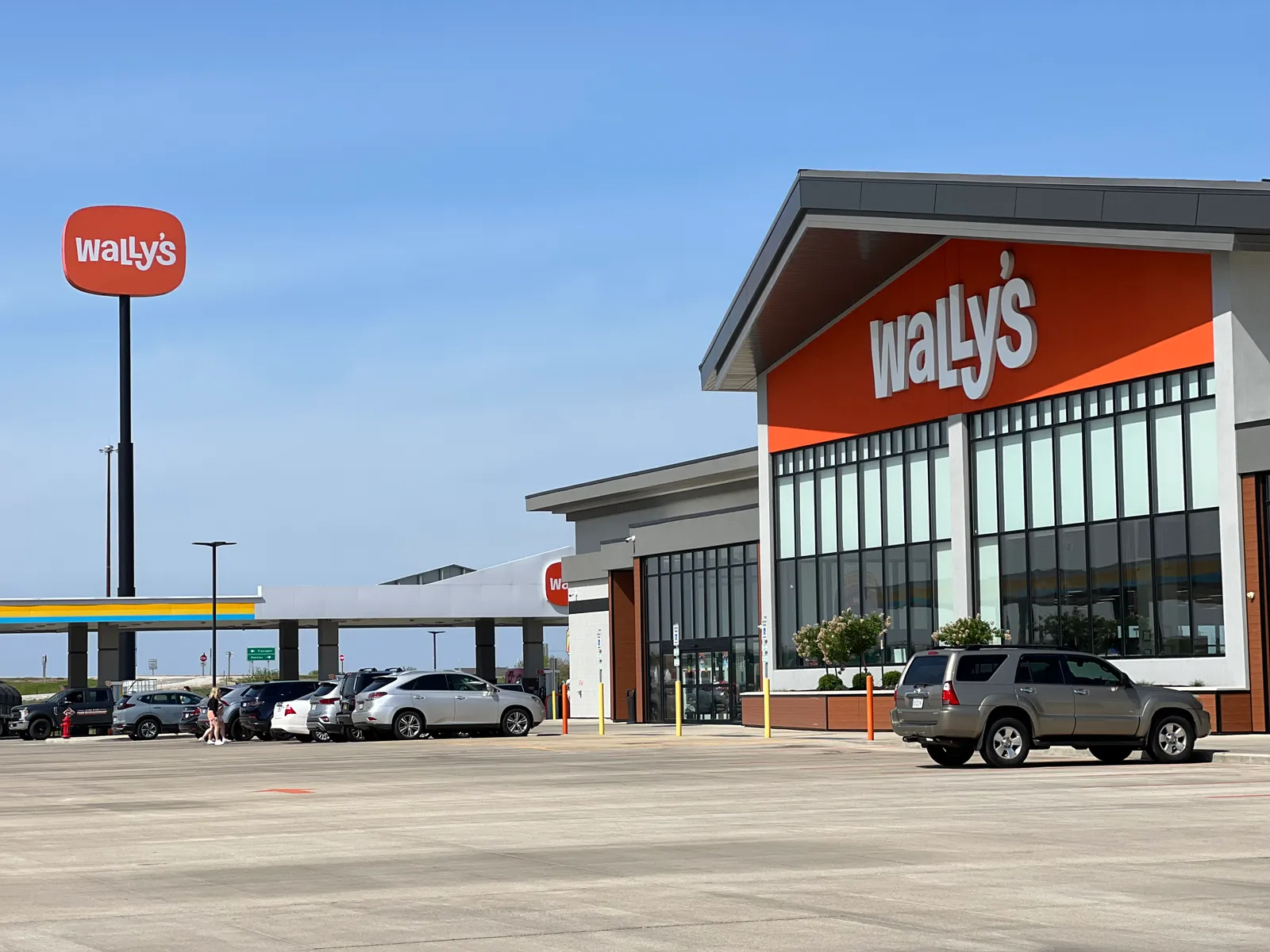
On the heels of the success of its first store, Wally’s opened a second location in March 2022 in Fenton, Missouri, about 20 miles southwest of St. Louis. That store is even bigger than the first, at about 36,000 square feet.
As consumer demands for quality foodservice and premium merchandise grow around the c-store industry, large-format travel centers are on the rise. Lake Jackson, Texas-based Buc-ee’s has led the way for years, with more than 40 sites currently in its network and ambitious growth plans in the works, while QuikTrip has opened more than 20 remote travel center stores since launching the concept in 2020.
Wally’s doesn’t plan to stop at two locations. The retailer has its sights set on bigger things, including more stores in multiple formats, a loyalty program, an online shop and delivery.
“The large-concept store with a lot of open space to move around is kind of the way the future is going,” Rubenstein said.
Big and small stores
Wally’s is set to break ground on its third — and biggest — travel center later this year, a 45,000-square-foot store near Indianapolis, Rubenstein said.
Rubenstein and his team consider a variety of elements when scouting for new Wally’s sites, including how easily those locations will be serviced from the company’s distribution network, what the population and demographics are like in the area, and highway access and visibility.
Although they eventually hope to expand Wally’s nationwide, they’re currently focused on growing in the Midwest and building a brand presence at highway exits across the region.
“The exciting thing about the opportunity is there's just really nothing like [Wally’s], especially in this part of the country,” Rubenstein said.
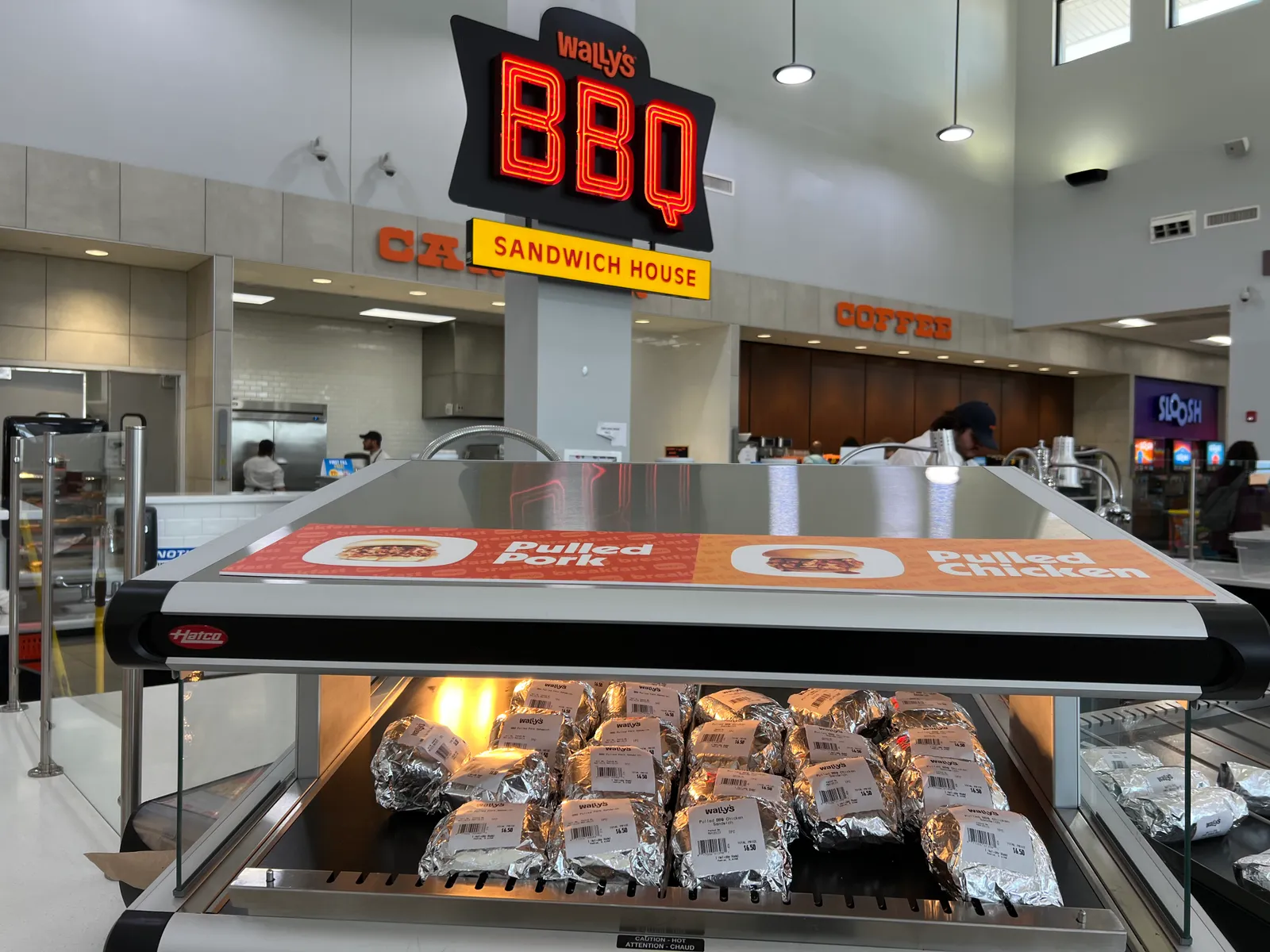
But Wally’s won’t be pigeonholed into travel centers. In March, the retailer opened a 1,500-square-foot express store called Wally’s + Market inside the CityPark soccer stadium in St. Louis.
Unlike Wally’s travel centers, this location is completely frictionless, having been developed in partnership with checkout-free technology company Zippin. Customers walk in, grab their items and head back to their seats.
Although much smaller than the travel centers, Wally’s + Market still offers many of the same homemade food and beverage items, such as pork sandwiches, full chicken, hot dogs, fresh popcorn, beef jerky, fresh-baked cookies, salads and more.
Since this concept is brand new, Rubenstein and his team are still evaluating if they’d like to pursue more of these small-format stores moving forward.
“[There are] no plans for more of these yet, but [we’re] certainly open to the right opportunity,” he said.
Growing pains
Wally’s success during its short lifespan hasn’t come without challenges. Employee turnover and supply chain issues have both plagued the retailer since the first Wally’s store opened in the thick of the COVID-19 pandemic.
“They've both been super challenging — just keeping products on the shelves while at the same time keeping our team happy,” Rubenstein said.
Supply chain disruption has especially impacted Wally’s kitchen operations, specifically with lag times on new equipment arrivals. Rubenstein noted that any piece of equipment with a built-in microchip has taken triple the amount of time to get to them.
Although Wally’s is now working with suppliers to get a year’s worth of equipment at once to avoid these issues, the delays persist.
“We ordered an extra hot plate, and it took six months to get here,” said Lute Cain, executive chef at Wally’s.
The dearth of microchips has also caused headaches when Wally’s EV chargers need maintenance, Rubenstein said.
“For typical fuel dispensers, there's inventory and stock all over the country, and EVs are not that way,” he said. “They're very microchip sensitive, so the shortage has made it really challenging.”
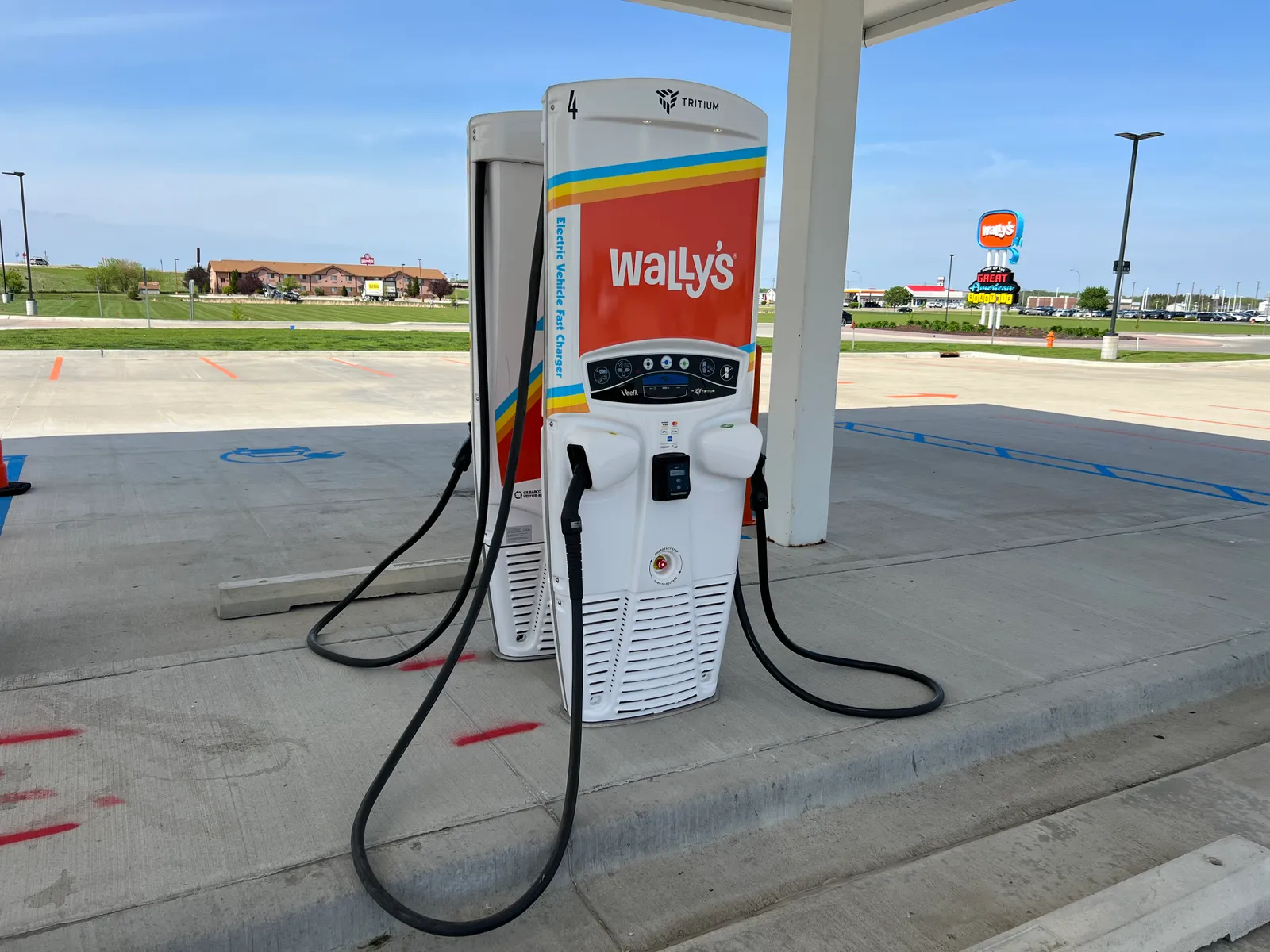
Rubenstein is aware that high employee turnover is common across the c-store space, and Wally’s is no different. Despite that, he noted that Wally’s has built strong teams and increased retention since 2020 by not only offering strong wages and benefits, but creating an environment that helps employees achieve leadership and career-development goals.
“There's no perfect answer other than to keep investing in the team and to show that we want to continue to see them grow,” he said.
As Wally’s continues to grow in store count, the retailer is also focused on building and launching its loyalty program, which Rubenstein noted has been a challenge.
Wally’s has a mobile app that features its careers page as well as a car game that lets users win points to spend in Wally’s stores. But there still isn’t any membership-based program involved with the app. The company has recently talked with different loyalty providers to help get a platform off the ground.
“The short answer is we’re not there yet, but we’re working on it,” Rubenstein said.
Wally’s is also in the process of building out an online store where customers can purchase its branded merchandise and jerky. Plans are underway for this online store to integrate with Wally’s mobile app and to offer delivery.
Still, Rubenstein noted that Wally’s will take its time with these sorts of initiatives to maintain its brand equity.
“Just like everything that we do, it has to be organic and authentic,” he said. “We're happy to try things, and if it fails, then we'll fix it and move forward.”



